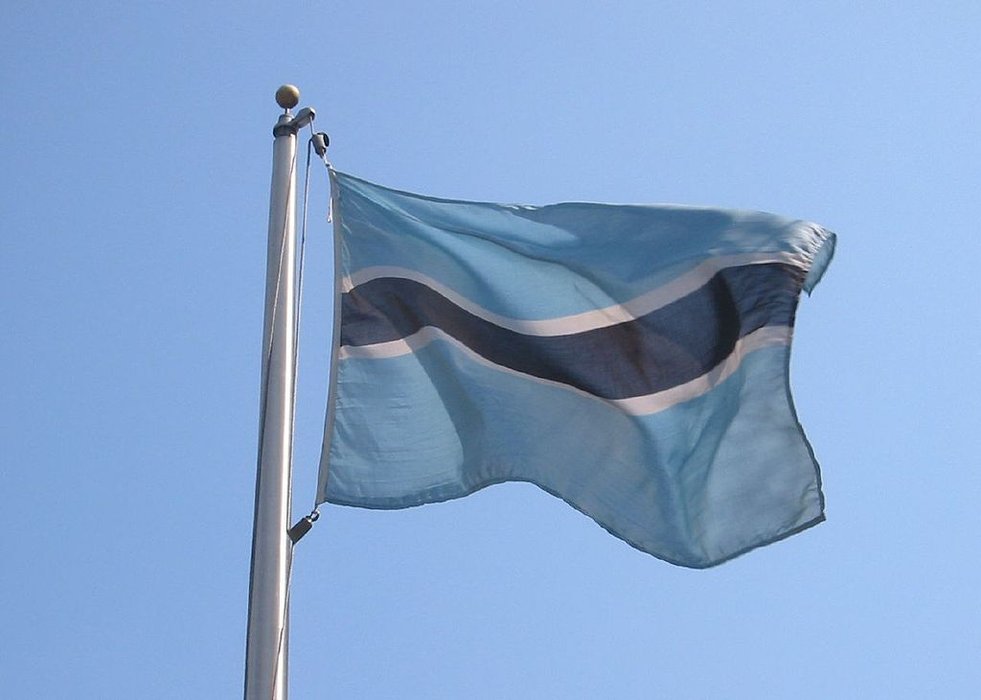
PRESS STATEMENT : DECRIMINALIZATION JUDGEMENT
— Lesbians, Gays and Bisexuals of Botswana -LEGABIBO (@legabiboadvo) November 29, 2021
Today, the Botswana Court of Appeal, through Judge President Ian Kirby, issued a monumental judgement to decriminalize consensual sex between same-sex partners. #DecrimBotswana #BeyondTheRainbow #ReBatswana pic.twitter.com/wOOqFrGepD
Association
Landmark court judgment decriminalises same sex relationships
In November 2021, Botswana’s Court of Appeal handed down a unanimous judgment in the matter of Attorney General v Motshidiemang, where same-sex relationships were decriminalised. This was an appeal that was brought by the government, in seeking to challenge the 2019 ruling of the High Court that criminalising homosexuality was unconstitutional.
Since judgment was handed down, President Masisi has made a commitment that the government will fully abide by the decision of the Court of Appeal.
As a result of the recent ruling, Botswana now becomes the fifth country in Africa to decriminalise same sex relationships. Other countries that have taken such measures include: Angola, Mozambique, Lesotho and Seychelles. South Africa remains the first and only African country to legalise same-sex marriage, with a constitution that also protects against discrimination based on sexual orientation.
Civil society actors from across the region have commended the decision of the Court of Appeal and expressed how the judiciary in the country has set a great precedent in protecting and promoting the human rights of every person. Nonetheless, the Southern Africa Litigation Centre has also said that there remains a need to reform Section 167 of the Penal Code, which the Court of Appeal did not address in its judgment since the applicant did not explicitly raise this section. According to Section 167, acts of gross indecency, whether performed in public or in private, and whether consensual remain criminalised. To the extent that it criminalises consensual sexual activities in private, such a provision should be amended because it indirectly prohibits sexual intimacy between lesbian couples.
Expression
Whistleblowing Act failing to protect expression
Responding to questions posed by Parliamentarians, on 21st March 2022, Botswana assistant Minister for Presidential Affairs, Governance and Public Administration, Dumezweni Mthimkhulu, conceded that the Whistleblowing Act of 2016 does not fully guarantee the protection of those who are fighting against corruption in the country. The legislation, which was adopted in 2016, aims, amongst other things, to provide for the protection against victimisation of persons who make disclosure on corruption related issues. In providing an analysis on the shortcomings of the Act, Mthimkhulu observed how the scope of the application is broadly focused on public entities, while there is a narrow application on the conduct of private entities.
Furthermore, the current legislative framework does not afford protection to anonymous reporters. In terms of the United Nations Convention Against Corruption, which Botswana has ratified, State Parties should take measures that allow members of the public to report anonymously on any issues that are considered as an offence, in accordance with the Convention. In closing, Mthimkhulu admitted that the Act needs to be amended in order to ensure the full protection of whistle-blowers.
Proposed amendments seek to provide oversight to interception of communications
In February 2022 the government of Botswana tabled amendments to the Criminal Procedure and Evidence (Controlled Investigation) Bill of 2022. This was in response to some sections of the Act which received criticism from various civil society actors in the country and from many parts of the world. The parts of the Bill that caused concerns referred to expanding the powers of the government to intercept communications without a warrant or public oversight under certain conditions. Furthermore, the Bill also made provision for forced disclosure of information to the State intelligence and law enforcement agencies under certain circumstances. This raised serious criticism for the effective work of journalists and the protection of freedom of expression in the country.
The certificate of urgency under which the Bill was debated in Parliament was also disputed because it meant that the Act would be expedited and the public would not get a chance to give inputs.
- The concerning parts of the Bill were ultimately amended as a result of relentless interventions that were made by civil society and labour movement groups. In its current form, the Bill has been amended to include the following provisions:
- Prohibit investigators from intercepting communications without a warrant, where previously the Bill provided for authorities to conduct warrantless interception of a person’s communications for up to 14 days;
- Create a committee, to be headed by a judge, which will give oversight on interception operations and undercover investigations and receive complaints about any misuse of such powers;
- Require the committee to report annually on its work, which the Minister of Defence, Justice and Security must table in Botswana’s National Assembly.
The Bill now sits before a parliamentary Committee for further deliberations.